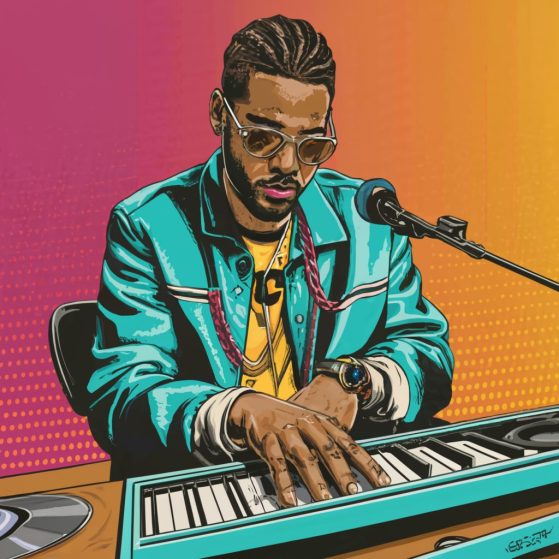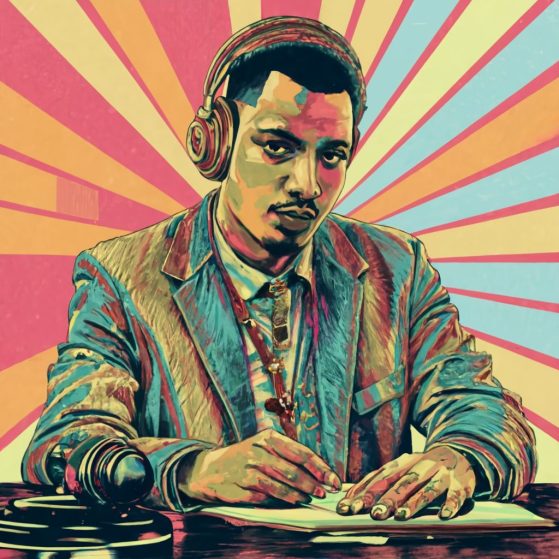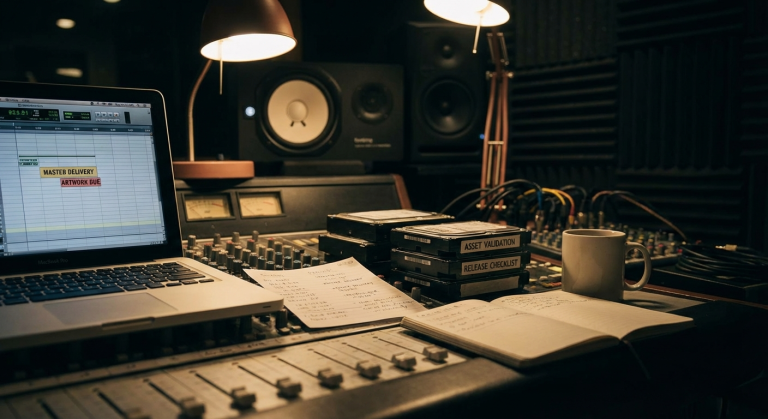Understanding AI and Its Potential Impact on Music Education
Clarifying Artificial Intelligence: A Brief Overview
Artificial Intelligence (AI) is a branch of computer science that empowers machines to mimic human intelligence and perform tasks such as data analysis, pattern recognition, and problem-solving. As AI continues to evolve, its implications reach far beyond mere computation, touching almost every aspect of our lives, including education. In the context of music education, AI can facilitate a more personalized, engaging and effective learning experience.
The Interplay of AI and Music Education
The transformative potential of AI in music education lies in its capacity to adapt educational content based on individual learning patterns and needs. With AI-driven tools, it is possible to deliver customised instruction that complements each learner’s unique style and pace. For instance, some AI-powered applications can analyze a music student’s performance in real-time, provide instant feedback, highlight areas for improvement, and suggest personalized practice sessions.
Moreover, sophisticated AI systems can simulate virtual tutors who are capable of not only teaching music theory and techniques but also of understanding and reacting to a student’s emotional state, thereby providing a more holistic learning experience. Such advancements could dramatically change traditional music education structures and pedagogies, creating more opportunities for self-directed learning and for students to excel irrespective of their geographic location or socio-economic conditions.
Potential Challenges and Ethical Considerations
While the potential benefits of AI in music education are vast, it is crucial to consider the potential issues and ethical considerations. Concerns related to data privacy, accountability, and the digital divide need to be adequately addressed. Moreover, there is a risk of over-reliance on technology, which could eventually undermine the role of human teachers.
In conclusion, the intersection of AI and music education promises a range of exciting possibilities for customized learning experiences. However, it’s essential to navigate this territory with an understanding of potential challenges and ethical complexities to ensure that the adoption of AI technology enhances music education rather than constrain it.
Transforming Traditional Learning: AI in Music Instruction
In this era of rapid technological growth, it is essential to consider the transformative potential of artificial intelligence (AI) in music instruction. AI’s innovative capabilities can provide tailormade education solutions that go beyond traditional learning methods, stimulating a novel and personalized approach to music education.
AI-Powered Music Tutors: A New Route to Personalized Learning
To begin with, AI-powered music tutors have emerged as a powerful tool for facilitating customized learning experiences. These cutting-edge systems use machine learning algorithms to analyze a learner’s skills, progress, and areas of improvement in real-time. This technology can generate personalized lessons and exercises based on these insights, supporting learners in honing their musical abilities at their own pace.
For instance, platforms like MusEDLab‘s AI Duet and Soundtrap’s AI music tutor provide interactive educational experiences. They listen to users playing music, interpret the input, and then provide immediate feedback or play along in real time, aiding in improved proficiency and understanding of musical nuances.
Music Composition and AI: The Creative Process Reimagined

Secondly, AI can play a pivotal role in revolutionizing the creative process of composing music. AI-driven software such as Amper and AIVA can create original compositions, offering students a unique opportunity to understand the structural aspects of music composition. Students can modify these AI-generated music pieces, explore different compositions, and thereby expand their creative horizons.
These tools not only offer a platform for exploring musical creativity but also act as a catalyst in teaching music theory, arrangement, and composition techniques. Through these AI-driven processes, students gain direct experience and knowledge, which enriches their overall learning journey.
AI and Music Analysis: Boosting Understanding and Interpretation
Lastly, AI’s ability to analyze music can enhance students’ understanding and interpretation of various musical elements. AI algorithms can dissect music into its core components, such as pitch, rhythm, harmony, and timbre, offering granular insights. This capability allows students to gain an in-depth understanding of the underlying mechanics of music.
Platforms like Melodrive and Popgun leverage AI to analyze musical data and produce comprehensive breakdowns. This aids learners in recognizing patterns, understanding musical structure and style, and developing an analytical approach towards music.
In conclusion, AI’s integration into music instruction can transform traditional learning paradigms. It offers the possibility of a more personalized and nuanced learning journey, enabling learners to delve deeper into the realms of music theory, composition, and analysis. The potential of these innovative technologies to redefine and enrich music education is truly boundless.
AI-Based Personalized Learning Paths: How They Work
Understanding AI and Its Role in Personalized Learning
Artificial Intelligence (AI) is a technological phenomenon that has transcended various sectors, including education. It enables the creation of systems capable of processing information and learning from it, just like humans. In the context of personalized learning paths, AI plays a crucial role in analyzing individual students’ needs, capabilities, and preferences to tailor a customized learning experience.
Process of Creating AI-Based Personalized Learning Paths
The AI-based personalized learning paths work through a well-structured process. First, the AI system collects data about the student’s behavior, abilities, and learning style. This data may include their pace of learning, preferred study time, strengths, weaknesses, etc. The data collection can be done through quizzes, interactive sessions, or direct input from the students.
Upon collecting the necessary data, the AI then processes this information, identifying patterns and individual learning tendencies. This process is known by a term called ‘Machine Learning’, an aspect of AI enabling it to learn and evolve over time.
After this data analysis, the AI, using its advanced algorithms, creates a unique learning path for each student. This pathway adjusts over time as the AI continues to learn more about the student, ensuring that the learning process remains accurate and beneficial.
Impact of AI on Music Education
In music education, AI-based personalized learning paths have shown significant potential. They allow learners to explore music at their own pace, focusing on areas where they need more practice while skipping or hastening through aspects they’ve already mastered. For example, a student struggling with rhythm but excelling at melody could receive a curriculum emphasizing more rhythm exercises.
Moreover, AI can provide instant feedback, which is highly beneficial in music learning. It allows students to correct their mistakes in real time, helping them improve faster. All these benefits prove how harnessing artificial intelligence for customized learning in music education can revolutionize the way students learn and interact with music.
The Role of AI in Identifying Individual Strengths and Weaknesses
Artificial Intelligence (AI) holds immense potential in charting the education landscape, including music, by customizing learning strategies based on individual strengths and weaknesses. This section elucidates how AI technology assists in discerning these unique attributes in music education.
Utilizing AI for Personalized Learning
AI technology has the capability to amass and analyze comprehensive data about a student’s learning process in real time. It can observe patterns and associations that may not be discernible to the human eye. For instance, in music education, an AI-powered system might identify that a student demonstrates notable dexterity when playing fast-paced compositions but struggles with rhythm consistency in slower pieces. These insights lead to personalized learning experience, thereby ensuring enhanced outcomes.
AI-Based Adaptive Learning Systems in Music Education
Adaptive learning systems powered by AI offer another avenue for identifying individual strengths and weaknesses. These systems adjust the pace and difficulty level of lessons according to the learner’s progress. For example, if a student quickly grasps the concept of reading sheet music, the system could introduce more complex musical scores. Conversely, if they have difficulties in pitch identification, the system may allocate more time and resources to this area until proficiency is achieved. Thus, AI serves as a responsive teaching assistant, facilitating focused learning in areas of weakness and continuously challenging areas of strength.
Feedback and Improvement Mapping through AI
AI also plays a vital role in providing timely and constructive feedback. Traditional music education feedback often relies on periodic assessments. However, AI can monitor performance consistently, providing immediate feedback that allows students to correct errors and reinforce learning promptly. Moreover, AI can track learners’ improvement over time, offering a detailed picture of their evolution and enabling educators to tailor curricula effectively. This approach not only fosters continuous improvement but also drives motivation by highlighting tangible progress.
Implementation of AI in Developing Unique Music Learning Curriculums
Analyzing Individual Learning Styles
One of the most significant aspects of AI in creating unique music learning curricums is its ability to analyze individual learning styles. Artificial Intelligence systems can process and interpret vast amounts of data from students, such as their historical performance, speed of learning, strengths, weaknesses, and personal interests. This detailed analysis enables AI to recommend personalized lesson plans and practice routines. It may even suggest which musical instruments are more suitable for the learner, facilitating a customized approach that caters to individual needs rather than a one-size-fits-all model.
Creative Algorithms and Music Composition
The integration of AI also includes the development of creative algorithms, which can aid music composition and theory lessons. These algorithms can create new and original music pieces based on specific parameters set by the learner or educator. For instance, the student can specify a genre or mood, and the AI will generate a piece of music accordingly. This feature not only provides fresh content for the learners but also allows them to understand different aspects of music composition in a more engaging and interactive way.
Real-time Feedback and Adaptive Learning Methods
Artificial intelligence technologies, such as machine learning and natural language processing, can provide real-time feedback to students during their learning process. They can track and evaluate the student’s progress, identifying common mistakes and suggesting targeted exercises to improve. The active involvement of AI tutors can ensure that the feedback is not only immediate but also precise, reducing the possibility of errors being ingrained in the student’s playing. Furthermore, these systems can adapt to the student’s evolving proficiency level, making the learning experience more dynamic and efficient.
Case Studies: Successful Applications of AI in Music Education
Auralia’s AI-Powered Music Education
One of the successful applications of AI in music education is with Auralia, a cloud-based music education software. Auralia uses AI to customize learning programs for individual students. By determining the student’s strengths and weaknesses through intelligent algorithms, it provides tailored exercises and feedback. Its AI system also enables accessible remote learning, making music education more flexible and adaptable for different learners. Moreover, Auralia’s AI technology has proven to be effective in improving students’ performance in theory as well as practical skills.
AI-Music Tutor: Yamaha’s Vocaloid
Yamaha’s Vocaloid revolutionizes vocal synthesis technology. With AI, Vocaloid creates strikingly realistic singing voices, offering students an innovative way to fully grasp vocal practices. Vocaloid not only assesses the technical aspects, such as pitch and rhythm but also focuses on nuances like vocal timbre and expression. This personalized coaching enabled by AI has facilitated rapid progress amongst students, rendering Vocaloid a successful AI application in music education.
Amper Music: Harnessing AI for Composing Skills
Amper Music is an AI-driven music composition tool that illustrates another dimension of employing artificial intelligence in music education. It allows learners to create unique musical pieces with no prior knowledge of composition, overcoming traditional barriers to music creation and fostering creativity. Students can experiment with different genres, tempos, and moods, while the AI acts as a supportive guide, offering instant feedback and suggestions. Teachers report higher student engagement and motivation with tools like Amper Music, further underscoring the success of AI in music pedagogy.
Future Perspectives: The Evolution of AI in Music Education

AI and Personalized Learning in Music
Artificial Intelligence is poised to pioneer a revolution in music education by ushering in an era of personalized learning. AI can evaluate individual student strengths, weaknesses, aptitudes, and preferences, using this data to create a highly tailored and adaptable learning pathway. This approach allows students to grasp musical concepts at their own pace, also providing them ample opportunities to explore and nurture their unique musical interests and abilities.
Integrated AI systems can also recommend relevant resources or exercises based on each student’s progress and personal goals, creating a dynamic, engaging, and effective educational environment. Students can also receive immediate and precise feedback on their performances, nurturing their skills while minimizing the potential for ingraining bad habits.
AI’s Role in Expanding Access to Music Education
Beyond personalization, AI stands to democratize music education, making high-quality instruction and resources available to students irrespective of geographic location or socio-economic status. Intelligent music education platforms can provide lessons, exercises, and interactive learning experiences that were previously limited to traditional classroom settings.
This democratization extends to instruments and equipment as well. Virtual instruments and AI-powered sound technology can simulate different musical instruments and configurations accurately, eliminating financial barriers to entry and allowing more students to immerse themselves in music learning.
Innovative Uses of AI in Music Creation and Performance
The potential impact of AI on music education extends into the creative realm as well. AI technology is steadily infiltrating the field of music composition, offering tools that can analyze, mimic, and even innovate musical styles and structures. As these technologies improve, students will have an opportunity to supplement their creativity with AI, understanding music from novel and exciting perspectives.
AI is also set to reshape performance dynamics by integrating interactive elements like real-time feedback and automated accompaniments. This approach offers students invaluable experiential learning, where they can fine-tune their emotional expression, timing, and technical precision.
In conclusion, the ongoing evolution of AI holds promising prospects for the future of music education. As technology continues to advance, it is anticipated to offer even more unprecedented opportunities for customization, access, and creative exploration in music education.
Looking for a trusted and knowledgeable agency to help market your music career?
Contact us at + 1 626 872-5151 or info@flourishprosper.net
Or Checkout our website at flourishprosper.net




